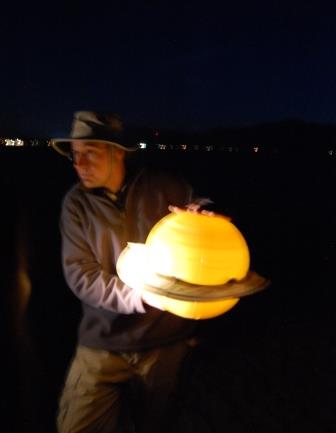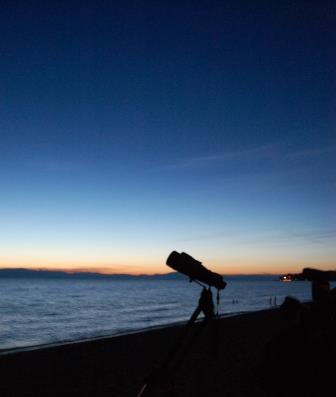Virginia Cosmic Experiences and Stargazing for Families. Gazing at the mesh of stars can be fun or it can be humbling. The best night sky adventures coincide with crisp clear often chilly nights and companions who know what to look for in the night sky. It all depends on getting everyone to agree which way is true North.

Cosmic Expeditions in Richmond. The Science Museum of Virginia has hundreds of hand-on exhibits offering hours of interesting ways to enjoy science with your kids. Dynamic astronomy features known as Cosmic Expeditions depart daily from The Dome, the Museum's five-story all digital dome theater. Whether it's a wild ride through the thick atmosphere of Venus, dodging solar flares around the Sun or taking a trip to the Cat's Eye Nebula, guests will interact with the cosmos in a truly spectacular fashion. Journey through the cosmos with an astronomer, explore the night sky and unearth your world in the ultimate immersive experience.
Bonus Points: Enjoy Museum exhibits, head into The Dome for a custom all-live expedition across the galaxies and step outside to stargaze through telescopes with the Richmond Astronomical Society. Join the Museum on the third Friday of each month for “Science After Dark,” an evening event that harnesses the power of the stars.

(Science Museum of Virginia/Ethyl IMAX Dome. Toll-free 1-800-659-1727 FREE or (804) 367-6552
www.smv.org)
NASA Sky Views. Another indoor option to compliment sky watching is Virginia Air and Space Center at Hampton Roads. It is the official visitor center for NASA Langley Research Center and an inspiring location no matter your age. Onsite you will find more than 100 exhibits related to the night sky and space exploration. Favorites for kids of all ages include the Apollo 12 Command Module and moon rock. (Hampton: Virginia Air and Space Center (757) 727-0900.
www.vasc.org)
From sea to sky. Stargazing is terrific at the water’s edge and Virginia’s Eastern Shore is no exception. The NASA Visitors Center on Wallops Island provides another dimension to sky viewing. It’s a place to think about Stonehenge and how about the Sphinx? What is the connection between Orion and the Mayans? What about the North Star and freedom? Visiting the center connects the science with the activity of sky watching. It is a great excursion for young space scientists and their stargazing companions. The Visitor Center has a multicultural astronomy program that invites viewers to travel back in time to discover the mysteries of the ancient and not so ancient civilizations and their connections to the stars and the planets. (NASA Visitor Center on the Eastern Shore (757) 824-2050. Details. (757) 824-2298 or
www.wff.nasa.gov)
The water’s edge of Virginia is ideal to watch the moon break and spot the first constellations of the evening. Not far from Wallops is Chincoteague National Wildlife Refuge. It covers more than 9,000 acres and stops at the Maryland border. During the spring, summer and autumn rangers provide walks and talks for visitors. During the winter months the skies provide much to view along miles of beaches, dunes and pine-lined trails. The night sky is really big and constellations seem to pop into view.

Best star parties in Virginia, Maryland and West Virginia. NOVAC located in Virginia, near Washington D.C. is the go to organization for star gazing. Their motto is “To Observe and to Help Others Observe.” In addition to the official observing sites, there are several other places near Washington, DC where NOVAC members like to go to observe. Occasionally, NOVAC hosts or participates in public activities at Franklin Park and Sky Meadows State Park. NOVAC lists star parties held in the region for example: Almost Heaven Star Party (August 14 – 18, 2015) will be held at the Mountain Institute in Spruce Knob, West Virginia one of the premier dark sky sites in the eastern region of the US. For details on star parties in the region go to
http://www.novac.com
Checkout Star Date. One of the best resources I have found for night sky gazing is Star Date. The website has posted with planet viewing information, a constellation guide, explanations about phenomena, myths and fallacies, useful sky watching tips, and astronomy news. Details at
StarDate.org